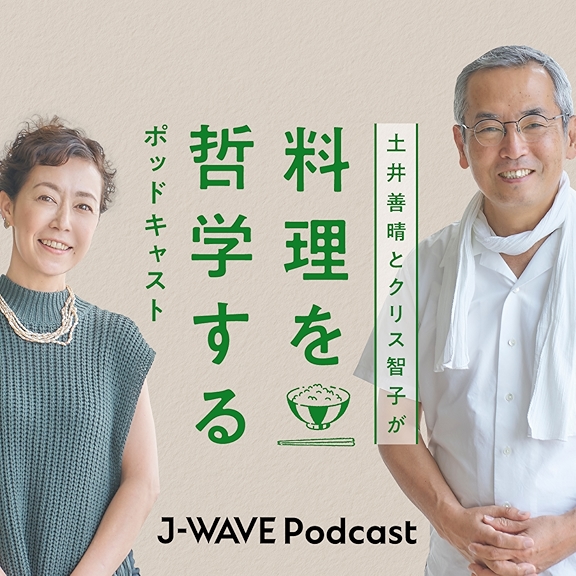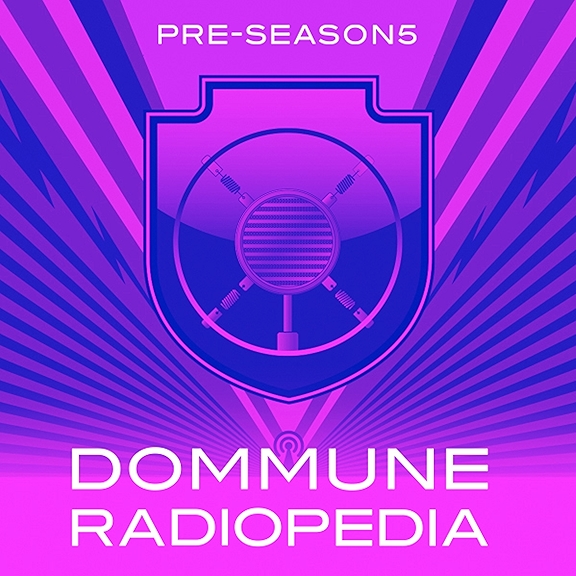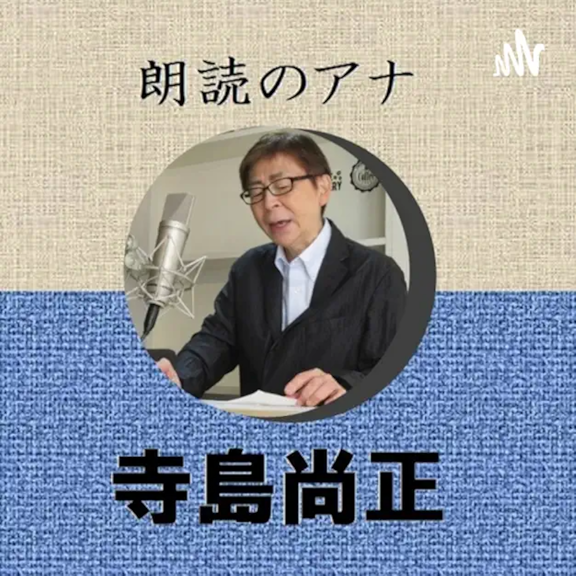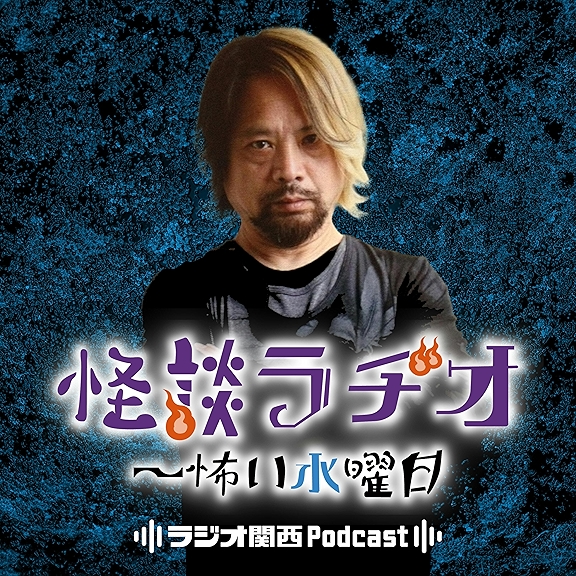
Dawn DeKeyser on IMDB - https://www.imdb.com/name/nm0215245/
Dawn's Website - https://www.dawndekeyser.com
Michael's Online Screenwriting Course - https://michaeljamin.com/course
Free Screenwriting Lesson - https://michaeljamin.com/free
Join My Watchlist - https://michaeljamin.com/watchlist
Transcripts Are Auto-Generated
Michael Jamin:
I've made a number of posts about this that yeah, put yourself in a box. People are like, But I don't wanna be in a box. Put yourself in a box and you'll worry about getting outta the box later. But right now, you need to sell yourself as who? This is what you are. What do I do? That's right. That's
Dawn DeKeyser:
Right. And, and so many new writers are still struggling with that. And I said, People cannot help you if they don't know where to put you.
Michael Jamin:
You're listening to Screenwriters. Need to Hear This with Michael Jam. Hey everybody, this is Michael Jamin and you're listening to Screenwriters. Need to Hear this. Mike cohost Phil Hudson. He's got the day off again. He's doing some more work behind the scenes, but I'm here interviewing the amazingly talented Dawn de Kaiser. And, uh, Dawn, let me tell, tell everybody who you are. Let me also you, I need to remind you who you are.
Dawn DeKeyser:
Okay? Please do
Michael Jamin:
So. You got a long history of writing some pretty great shows. So first you started, I guess, on All American Girl. That was the Margaret Cho show you did Ink Ted Danson. Remember that one? I remember that one. News Radio you wrote a news radio you wrote on All right, already, which I did not know. I guess you wrote with Steven Engel on that one. I didn't know that. Conrad Bloom, you know, I went to, uh, I went to uh, college with him. We were friends in college, Mark Fostein. Um, but I haven't talked to him since. And then the Gina Davis show starring who, who started that? Uh, the Becker Becker again. Ted Danson. Let's listen to these credits you got there was amazing. Uh, just for kicks. Ugly Betty. We know Betty Lafa, Samantha, who if I were on that show, I would've been insufferable because someone would've said, Yeah, I I have an idea. What if Samantha goes on a date? And I would've been like, Samantha, who? That would've been my joke all every day. Sign sealed. Oh, I skip on the client list. Sign sealed, delivered, hit Streak. The Gourmet Detective Summer. Love the Good Witch. Thank you, John. Thank you so much. Look at me. Are you impressed with how much work?
Dawn DeKeyser:
I am so impressed at. Who knew? I had no idea.
Michael Jamin:
You've done a lot of you. So anyway, I thank you so much for joining because, uh, is, we've never worked together. I always, even though I've known you for years, I always figured we would work together at some point. We just never did. And I blame you for that.
Dawn DeKeyser:
I, uh, I, blame me, we were on the same studio a lot. We were like, Yeah. Next to we had bungalows next to each other. Mm-hmm. . So that counts completely is, Yeah.
Michael Jamin:
Yeah. You were always a familiar face.
Dawn DeKeyser:
But before we start, can I curse?
Michael Jamin:
I don't Sure. Why, why would you, Is there something you wanna get off your chest? ?
Dawn DeKeyser:
Yeah. No, just that in the course of talking, it's gonna play a part of describing my path in life and Oh yeah. I don't think I could do it without some gods and fucks. So
Michael Jamin:
Do it. Do it up.
Dawn DeKeyser:
Okay.
Michael Jamin:
Cause I we're getting to the truth again. So let's begin. How did you become? Where did you start? How did you get into sit? Everyone wants to know how people get into sitcom writing or TV writing. So how did you get in?
Dawn DeKeyser:
Yeah, so, and we all come from different angles on different paths. And in order to get to my TV days, I'll just say a little bit about my background. I was raised in a military family and my dad was a fighter pilot. And I grew up in a very great Sani kind of house. Um, I, I say I was the best son my dad ever had because I was tough and competitive. And I weighed 92 pounds and I was pious.
Michael Jamin:
Wait, did, were you the only child?
Dawn DeKeyser:
No, I had two sisters. So my mom, who was lovely, she would dress my sisters and I all in matching dresses, hats, gloves and shoes. And we would march out onto the tarmac and salute the F four phantoms as they landed.
Michael Jamin:
Wow. And so, and so you moved around the country then? Probably?
Dawn DeKeyser:
Yeah, I was born in Japan and I lived in England.
Michael Jamin:
Oh my. And so your Okay. Military brat. And then when you say Great Santa, cuz your dad was strict. Oh, is Now, do you wanna start cursing now? What did you want to curse?
Dawn DeKeyser:
Um, well, let's see. He, we did have a flow chart of our chores on our bedrooms. And when we were, I think starting at three and four and our beds had to be made with hospital corners really. And we would have to stand in a line, add attention and get, you know, understand what our chores were gonna be for the day and for the week.
Michael Jamin:
Because you are so not that you're so, you know, kind of almost soft spoken, very gentle. You're very warm energy. You're not , you're not a, you know, uh,
Dawn DeKeyser:
It's taken a long time to get this outta my system. So when I was in junior high, we moved from England to Texas and I went from riding English, um, horseback to competing in rodeos. And I then started racing sailboats. And by college I was on the varsity team. And, um, by the way, I paid my way through college, working two or three jobs each semester. And I started working when I was 15. That's a little Rob Cohen of me. Yeah.
Michael Jamin:
Wait, where did you go to school?
Dawn DeKeyser:
Um, which time? Uh, I went to, so in college I went to the University of Texas and I studied international business, Uhhuh. And then I dropped out of UT and moved to Belgium where I worked at a division of NATO for, for,
Michael Jamin:
I feel like you might speak a lot of languages. Do you speak how many languages you speak?
Dawn DeKeyser:
Um, I used to speak French when I worked in the warehouse with the Belgians. Right. Um, and then, you know, when my other girlfriends were cheerleaders and all that, I was treasurer of the Latin Club. I don't mean to brag.
Michael Jamin:
Wow. So you speak Latin. I knew you spoke. What?
Dawn DeKeyser:
And, and so then I, after dropping out, I went back and I finished up my degree in, uh, appropriately named a BS in advertising. And that's, that's really when I started my writing career. And, um, let's see, what did I do? So I started,
Michael Jamin:
You worked in advertising.
Dawn DeKeyser:
So I got to work on tv, radio, and print. And in fact, my first assignment was writing, uh, dozens of scripts for David Brener for Taco
Michael Jamin:
Bell. That was your work. Now I, now I know your work. .
Dawn DeKeyser:
That's what I'm known for. Um, so getting closer to the TV part, I was living in Dallas. My boyfriend was discovered by a talent manager, and he immediately moved out to LA and became a successful actor.
Michael Jamin:
Do we know his name?
Dawn DeKeyser:
Yeah. I went, I'll I'll say it. I mean, it was a long time ago. So Tom Hayden Church.
Michael Jamin:
Oh, I did not know that. Okay.
Dawn DeKeyser:
Yeah. And so he, his confidence and his uniqueness was just like he broken right away. Mm-hmm. . And I went on to New York and in advertising, which I loved. And you know, after a while, after about two years, I thought maybe I could write something longer than 30 seconds. Mm-hmm. . So I took writing classes at night. I did improv, which I was terrible at because of that. Let's revisit the military background. I am not spontaneous.
Michael Jamin:
You're not supposed to go off script when you're in the military.
Dawn DeKeyser:
Oh. Oh, no. And I'm very methodical and you know, by this time I was like mid to late twenties and I guess I was having a quarter life crisis and thinking, what, what am I, what do I wanna do and what do I love doing? I loved writing and I loved sitcoms more than anything. Um, I didn't know how to do that. I called Tom, who was at the time on Wings, that was his first series. And I said, Could you send by now my ex-boyfriend? And I said, Could you send me the writer's draft through a producing draft? I wanna see the transition mm-hmm. of how this writing is done. And so then I started taping my favorite shows and then doing the stop and pause on the VHS tape.
Michael Jamin:
Like really studying how long a scene would be, how what the act breaks are everything. Huh.
Dawn DeKeyser:
All that. The dialogue, the, and I would map out the beats on a notepad, which by the way, I still write on old fashioned paper notepads for everything. And then I transfer it to the computer. Wow.
Michael Jamin:
That's old school.
Dawn DeKeyser:
That is old school. And it is all about the ritual. And like, I think there's something about the the brain to the heart to the hand that gets on paper that I, I don't get when I write.
Michael Jamin:
But you could, you must be able to read your handwriting. Cause I can't read my handwriting. I couldn't even try.
Dawn DeKeyser:
I no, I can't. I can get the gist of it.
Michael Jamin:
Oh, really? Okay.
Dawn DeKeyser:
Yeah. Um, so Tom sent me a series of one of one script and, um, I was writing my own two spec scripts. And then I moved to LA with $3,000 in cash.
Michael Jamin:
And where, what I always, I I have to What part in LA did you live at first?
Dawn DeKeyser:
I lived Endless Field, which was being hailed as the New West Village of LA and it is not. And I was living right on Vermont Avenue and I slept on my bathrobe for the first two weeks until my stuff came from New York.
Michael Jamin:
But you had a place all by yourself or you have roommates?
Dawn DeKeyser:
Uh, no, I had a place to myself. I mean, it was $700 for one.
Michael Jamin:
Mm-hmm. . That sounds about right. That's a good deal actually. Uh, even then, that's a good deal. So, okay. And then, and then how did you find a, how did you finally get work?
Dawn DeKeyser:
So I was writing these spec scripts and I sent them them to Bill Diamond and Mike Sal. Mm-hmm. . And when I moved out to LA, they were my first meeting.
Michael Jamin:
But How did you know them?
Dawn DeKeyser:
Through Tom? Because they were baby writers on the show. Oh,
Michael Jamin:
Right. Yeah.
Dawn DeKeyser:
And they said, you know, we thought you were just gonna be some gal who want, who had this idea of writing for sick homes, but you know what you're doing. Right. And I was very happy about that. They didn't give me my first break,
Michael Jamin:
But they, but they weren't, they were just staff writers at the time.
Dawn DeKeyser:
Yeah, yeah. Which is fine. You know, I thought the first thing I needed to do was build a community. So I took a UCLA extension class at night and on the last day of the class, everyone was filing out. Someone turned around and said, you know, the deadline for the Disney Writer's Fellowship is tomorrow. You have to have your work postmarked by then. Okay. And I ran home and got my stuff in the mail the next morning. And, um, I sort of like that intro that I just talked about my life, I sort of put some of that in the essay that you write for what's your unique background. And, um, and then sent in a, uh, a Murphy Brown, maybe. Mm-hmm. , I'm
Michael Jamin:
Not sure you had a bunch of specs
Dawn DeKeyser:
Probably. No, I had, because I'm very methodical, I would spend six months writing each of them. Okay. And that's night and day work shopping, doing writers groups, doing punch up mm-hmm. , um, until I felt like every page that your eyeballs land on made sense and was good and had a joke and you knew where the characters were going.
Michael Jamin:
Before we skip ahead, you said something I thought was really smart, you said you wanted to build your community. Right. Because a lot of people don't even think about that.
Dawn DeKeyser:
Yeah.
Michael Jamin:
So you knew you wanted by, you knew you wanted help or you wanted, like what, what were you looking for?
Dawn DeKeyser:
Well, I knew that I didn't know anyone here. Tom was off on his own, uh, fabulous life. I knew a girl from Dallas from years before, but, um, there was, there was no one that I could send my stuff to and I did cold calling to the agents and that didn't work. Doesn't do anything. Yeah. And so in the UCLA classes, I would usually, if you've got a group of 20 people, there's two that get it, let's say 10%, they're
Michael Jamin:
Get what get you or what do you mean get it?
Dawn DeKeyser:
I mean, they get what the, they are really there to learn and to be in that field. Mm-hmm. some others, you know, just they, it's a fun class to take. Right. But you can tell the two or three people that are very, um, interested in moving their career forward. Right. So I ingratiated myself and said, Let's form a writer's group. And that was okay. You know, that was fine until you start meeting people through them, they bring in their set of information that you don't have access to mm-hmm. and then it just starts growing.
Michael Jamin:
Right? Yeah. You gotta be there. And you, you were there now, how were you making a living? You still working in advertising now?
Dawn DeKeyser:
So I was still in, I wasn't in doing advertising. I was temping and I had this job at, uh, Disney on the lot where I was answering phones for the head of marketing mm-hmm. . And I thought, I'm advertising and marketing. And because, um, at, on the second day, he came out of his office and he said, Who are you and why are you so bad at answering phones? Like you're dropping calls and you're, you're sending in the wrong people. And I was like, Yeah, cuz um, this is really what I do. I actually love the One Sheet movie posters that you guys are writing, so I'd like to write headlines for that. And I had secretly gone into the files to see what their freelancers were invoicing them.
Michael Jamin:
Interesting.
Dawn DeKeyser:
And he said, Yeah, I don't think you're right for that. So I brought in my portfolio the next day and he said, I think you're right for this. So I started picking up freelance for movie posters,
Michael Jamin:
But that was not, See some people think that that's how you break in, but I wouldn't think that that's how to break in. That's just how to make a book. Right.
Dawn DeKeyser:
What do you mean? Like,
Michael Jamin:
Well, like that wouldn't, working in that advertising side for Disney wouldn't get you, you know, you're on the Disney lot, but it wouldn't get you as a sick, you know, get you work as a sit home writer.
Dawn DeKeyser:
That's right. So that predated getting into, so I got in the Disney Writer's Fellowship, Right. Um, that was over the course of like a two, two month process of interviewing and meeting with their executives. And I went into that meeting thinking, this is what I moved out here for. And they said, So what is your plan if, if this doesn't work out? And I said, This is going to work out. I really can't imagine y y'all finding someone better or more dedicated to doing great work. I really wanna do this. I wanna work with my heroes. I wanna work with people that will make me a better writer.
Michael Jamin:
And who were your heroes then?
Dawn DeKeyser:
Well, weirdly enough, um, I had top a top five. One was Diane English, one was Chris Lloyd, the, the writer. How
Michael Jamin:
Did you know Chris Lloyd? But yeah, I was so surprised you from, how would you know, how did you know Chris? Like how was he? He, Diane English? Yeah,
Dawn DeKeyser:
Diane English. Um, Chris was,
Michael Jamin:
Was he running, He wasn't running Fraser then?
Dawn DeKeyser:
He was like higher up on Fraser.
Michael Jamin:
Wow. Okay. Yeah. I'm surprised you even thought of him. But I mean Yeah, he's great. He's a he is a great writer for
Dawn DeKeyser:
Sure. Yeah, he is. And I can't remember the other three, but within the first two years of breaking in, I worked with all five of them.
Michael Jamin:
Wow. Wow. Now, what was the fellowship like? Cuz we did the Warner Brothers Writer's Workshop.
Dawn DeKeyser:
Yeah.
Michael Jamin:
I'd rather you talk about it. What was the Disney one like? What was your experience there?
Dawn DeKeyser:
It was so great. They picked five people. I think they had in that year, um, 3000 applicants. They picked five of us and Wow. That's it. Pardon?
Michael Jamin:
That's it. That's, I can't, I I didn't, I didn't know it was that small.
Dawn DeKeyser:
Well, it's, I think it's bigger these days. I think they take on 10 or 20, which is good. And they have a, they had another five fellows that did only film. And our five, you know, I'm still in contact with today. We would meet, um, twice a week at each other's houses. And then usually once a week or every two weeks we'd go to Disney and we would pitch where we are with our specs script. So it was a small, like a small stipend that paid the rent. Oh
Michael Jamin:
Wow. And those five, all five went on to work?
Dawn DeKeyser:
Um, not consistently. Not really. Okay. But that again, was just, I think it has everything to do with focus. Mm-hmm. . Um, and I'll talk about that a little more of like, if you, if you are not, if you don't pick a lane, I am a sitcom half hour multi-camera mm-hmm. writer. That's what I wanna do.
Michael Jamin:
That Right. I, I so intriguing. Cause I say that I've made a number of posts about this that Yeah, put yourself in a box. People like, but I don't wanna be in a box, Put yourself in a box and you worry about getting outta the box later. But right now you need to sell yourself as who this is what you are. Why do I do? That's right.
Dawn DeKeyser:
That's right. And, and so many new writers are still struggling with that. And I said, People cannot help you if they don't know where to put you. Yeah. And so if you say, Oh, I write drama and comedy and romance, it's like, that's great for you, but I only know comedy writers. Right. So I don't think I'm gonna even help you because I don't know if you're really connected with that or with drama or
Michael Jamin:
How serious you are about it. Yeah, exactly. Market yourself. Make it easy for people. Yeah. You know? Yeah. What, See, it's, so sometimes I, sometimes I wonder, am I just bullshitting? Am I making this up? You know, am I the only one who feels this way? No, I don't, I don't think, I think I'm saying stuff everyone else thinks, you know, agrees with
Dawn DeKeyser:
You are not alone. And you're getting such great information out there to so many people. It's really spectacular.
Michael Jamin:
You're very kind.
Dawn DeKeyser:
You're fan Michael Jam. But
Michael Jamin:
That's me. So then, okay, so then okay, then what you have. All right.
Dawn DeKeyser:
So then I was in the fellowship and they put, they don't promise, but they say, we may place you on one of our Disney shows. And that's where I went onto All American Girl. Mm-hmm. . And
Michael Jamin:
It, Were they paying you? Cuz I'm Warner of Brothers. If they staffed you in one of their shows, you get, at least back then you would get, you work for like a third of scale. A third. But was that the case on Disney?
Dawn DeKeyser:
We didn't get paid, but we got paid for the scripts that we wrote because they were already paying. Like, more brothers doesn't pay you
Michael Jamin:
To pay. Right. No one of those you pay to get in.
Dawn DeKeyser:
Oh yeah.
Michael Jamin:
We paid. Yeah. We, we paid like, I think it was like $400 each or something. But I think it's way more than now. I think it's a lot more now.
Dawn DeKeyser:
Hmm. No, they, they would place you as free labor on their shows. And it was my first experience in the writer's room. It was hard. I had trouble being heard. And I did end up, we had an order for 13 episodes. I ended up writing three of them.
Michael Jamin:
What was your three? That's that's a lot actually for a staff writer. I wonder why weren't you, you must have been scared.
Dawn DeKeyser:
They liked my writing. They liked, like, I spent again, it was like, I really sweated it. This is another thing that I, that I stress to writers is sweated, you can't make a lot of money if you're not putting that amount into your writing and your own career. So
Michael Jamin:
Yeah. So 13, that's a lot. And but what was it like? I mean, were you okay? I always think that when we first kinda just shoot me, I was like, I'm in over my head. I am in over my head. Yeah. How did you felt? The same way
Dawn DeKeyser:
I am in over my head. Um, I, yeah, I, it was terrifying. And I realized that I wasn't a match for people who had been in writing rooms that were louder funnier, more obnoxious, mostly just louder. Mm-hmm. . So I sat next to this one writer and I, I'd whisper things to him to see if he could pitch them for me.
Michael Jamin:
And did he? Yeah. And, and they went over and then did he give you, did you say as dope? Oh
Dawn DeKeyser:
Yeah. Yeah. He would gimme credit. But you know, I said I don't even wanna push that. I just wanna see.
Michael Jamin:
Right. If
Dawn DeKeyser:
You're on the right game. Well, I wanna be part of this game, but I don't know how to play.
Michael Jamin:
Yeah, right. Exactly. Right. And it takes several, How long did it take you before you felt like you knew how to play? How many years?
Dawn DeKeyser:
Um, well that's the interesting thing because my next job was on news radio. Right. And I, I have all, I had felt like an all American girl that I was getting my, you know, sort of getting my feet under me. But that was, they were kicked out from under me on this, on the next actual staff job that I have. Right. That I had. And it took me, um, quite a long time to feel okay in the room. And it really wasn't until many years later when I was in the ugly Betty Writers' room because the, you had drama writers there who were so great about staying on focus with the story and not performing and the performance of the comedy when you do a comedy pitch. I was scared of
Michael Jamin:
Oh, interesting. So cuz they don't have, obviously when you're doing the drama you don't have to be funny. So they're basically just talking about the story points. Cause I haven't really worked on it and they're not, Yeah. They're not hoping the joke will land cuz there is no joke.
Dawn DeKeyser:
It was so weird to, um, go out on, on an act with no joke. It was like, what? Wait, we can just cliff hanger like that. .
Michael Jamin:
Do you feel like these drama rooms are more civilized because of that?
Dawn DeKeyser:
Yeah, definitely. They were also, they were just more writerly and, um, more mature. And I, you know, I say that sitcom riding was a full contact sport. Mm-hmm. . And I didn't realize that when I started I wanted to be around really funny people. And it was so much work for me. There was the whole other aspect of being a female writer and oftentimes the only woman in the room.
Michael Jamin:
Why? Talk about that experience a little. What's that like?
Dawn DeKeyser:
Well, it sucked .
Michael Jamin:
It, it sucked. It sucked.
Dawn DeKeyser:
It was
Michael Jamin:
Sucked. But not all the time. Just sometimes or all the time?
Dawn DeKeyser:
Every time
Michael Jamin:
On every show. Every show.
Dawn DeKeyser:
No. If there were other women in the writer's room, it was a little less terrible,
Michael Jamin:
But still terrible.
Dawn DeKeyser:
Yeah. Yeah. Mm-hmm. . It wasn't until I got into dramas and then dramas that I just felt like, okay, I can, I can do my work. I could be funny. I'm much funnier on the page and I would just think, Oh God, I gotta get out of the writer's room so I can be funny. Right. So that was not the best strategy.
Michael Jamin:
Right.
Dawn DeKeyser:
Um, and I was the only woman on news radio that year. Andy and Eileen were there and they left after a few episodes.
Michael Jamin:
Right. But Right. But you overlap with him. Right. Cause that's how I, that's how I met you through Eileen I think.
Dawn DeKeyser:
Oh, probably. Yeah. Yeah. That's right.
Michael Jamin:
And you know, they were both very, I remember I'd just shoot me, both of them. They'd pitch a line, like a story, uh, idea and then, you know, people Oh, that's good. And like, how do you know it's good? How do they, like how are they doing this? Like how do you know? You know, Anyway, but I think
Dawn DeKeyser:
That's, I don't know. Would you say that it helps to have a partner? Oh yeah. Yeah. Yeah.
Michael Jamin:
For sure. It helped a lot. I mean I, you know, the two of us were clinging to each other for, you know, for dear life. . Um, I think definitely it's that way more intimidating to do it all to it on yourself. But how do you, what do you like, what do you experience even now or like lately when you have a staff writer who feels the same way that you felt like what, you know
Dawn DeKeyser:
Yeah.
Michael Jamin:
What goes on there?
Dawn DeKeyser:
Well, um, working on pilots, there was one young girl who came in and just to sort of observe mm-hmm. and I just took to her because she was so, um, she had a script in a big binder with all of it color coded with all of her nose. I was like, Oh my God, you're after my heart. Um, because
Michael Jamin:
She's so prepared. People, young writers come in prepared sometimes. I'm always
Dawn DeKeyser:
Yeah, they do. And I just said, You are after my heart. I will help you in any way that I can. And she was working for, for quite some time. I think she lives on the East coast now. Right. It's that, um, it's that showing up prepared and really earnest. Like, I love that. I kind of love when people try a little too hard and sometimes it can be cringy. I'm like, Yes, I get it. That's me.
Michael Jamin:
But do you have you also, cause I've experienced young writers who kind of don't under, they don't know what they don't know as well, you know, as well and they kind of
Dawn DeKeyser:
Yeah.
Michael Jamin:
Argue or overstep and, you know, have you experienced that?
Dawn DeKeyser:
Oh yeah. And the, one of the first things I say is, do not litigate. Do just, just take it in. And it's also the, um, once you learn how to take notes on your script and realize that it's not personal, get out of your own fucking way. Get outta your way. Because after like being in writer's groups, we had rules about how we gave notes to each other. And the person getting the notes has to shut up. You cannot explain why you put something in a script. It's like, I don't care why you put it in there. Here's me as a reader is not getting this part of it. Right. And there's been plenty of times I'd be giving people notes and just like in classes or writer's room. Um, Yeah. Classes a writer resume. And I could tell that they didn't want the note.
Michael Jamin:
Yeah. Oh well no one wants a note. . Yeah. I mean,
Dawn DeKeyser:
I mean just like basic stuff, especially in writers' groups where if, if they are arguing their stance and their reason for why they wrote something, it's like, Oh, I get it. Okay. You're good. You're good to go. All all's good.
Michael Jamin:
Right. Right. And so this, see, it's so funny how we have the same, like we've never worked in the same show. We've had so many the same exact experiences.
Dawn DeKeyser:
Yes. Although I would, I would, Oh you said venture to mention that. Um, you know, and some writers' rooms, it's like, I was not safe. I was commented, my body was commented on when I would walk into a room and when I would leave a room and I was told to suck it up by my agents because it was a really good show. Or
Michael Jamin:
Do you think they were trying to be funny or were they're being sexual harassing? Like, you know, what were they trying, what was the Oh,
Dawn DeKeyser:
Sometimes it was just trying to be funny. But, um, it was funny at my expense I say I was humiliated for sport on a particular show. Right. And they were cruel. And they were also like, my agents came in after one of our show tapings and they looked around the office and went, Oh, I see what you're talking about. It smells like rancid cheese in here. The guys were walking around in boxer shorts. They had brought futons to their offices cuz they were just staying there.
Michael Jamin:
So like, cuz the hours is terrible. Yeah,
Dawn DeKeyser:
Yeah. And they also had jars of their pee in the offices because I thought that was hilarious.
Michael Jamin:
Yeah.
Dawn DeKeyser:
So that's, that's not just being like, I
Michael Jamin:
Dunno. And it's interesting that you, you were able to speak up about this because this was before people were really speaking up about this. You know what I'm
Dawn DeKeyser:
Saying? I didn't, I didn't, I mean, I didn't until more recently. That's a really,
Michael Jamin:
To your agent at least you did. You know?
Dawn DeKeyser:
Well, I just said it's so hard. I mean it's so Yeah. And that my agents were women
Michael Jamin:
And they still, And you're, they still,
Dawn DeKeyser:
Yeah.
Michael Jamin:
I can't, I want, What do you think if that were today though? I can't imagine
Dawn DeKeyser:
It wouldn't happen today.
Michael Jamin:
Yeah. You'd be taking a lot more seriously, you know. Yeah,
Dawn DeKeyser:
Yeah. It, it, it, yeah. It wouldn't happen today. Um, that, that show ended up not hiring a woman writer for the rest of its run for like three or four more seasons.
Michael Jamin:
And, but from what I understand, well maybe, maybe I shouldn't say which show it was. Do we say which show it was? I know some,
Dawn DeKeyser:
It may have earlier, but
Michael Jamin:
I know some of the, like some of these shows that you were on the hours were absolutely terrible. Terrible. Like, what were those, what was that like?
Dawn DeKeyser:
That was like being held hostage by a crazy person. Right. And that sometimes the showrunner would be on medication and they would not be able to focus and they would just kind of keep us there. A lot of times you'd hear about showrunners who just didn't wanna go home to their wife and kids, which is terrible,
Michael Jamin:
Terrible, terrible. Right. Wow.
Dawn DeKeyser:
Yeah. Wow. So that was, that was hard. I mean, driving home at four in the morning and then getting up at around 10, um, and then getting back to the office by 10 30 or 11,
Michael Jamin:
Was there a lot of sitting around and waiting? Or was it all work?
Dawn DeKeyser:
No, it was a lot of sitting around and waiting and storytelling galing each other. Mm-hmm. , you know. Geez. But, but things are not, they don't work that way anymore. Which is,
Michael Jamin:
Yeah. I don't think so. You gotta, yeah. When you get, that's a bad situation. Uh, sometimes like we, you know, we did a couple bad hours like on just shoot me, but it was never, cuz we were dicking around, it was because like a story blew, blew up and we had to work till four in the morning. That was a couple of those. But it wasn't, cuz it wasn't ill behavior. It was just, that's just the, you know, sometimes that happens.
Dawn DeKeyser:
Yeah, for sure. And you know, people like Steve Levitan and some of the other guys you've worked with, they are not there to make a point or single someone out just for fun. Yeah. And you guys, you and Sea were as showrunners, you would never do that. You would never write that.
Michael Jamin:
No. Our goal was always to go home early. That was, how could we go home early today, , what could we do to get the work done, Have a, have a good hour. Um, but what about developing when you, you know, come up with your own ideas? What's that? How does that work?
Dawn DeKeyser:
That was, um, that was usually, uh, someone that I'd be in the writer's room with. They would come to me and say, I've got an idea. Do you like this? Or we would pair up just for the pitch.
Michael Jamin:
So most of your develop, Okay. So people ask me about that. Can you, can you work independently or can you work with team up with people? Cuz we, we, you know, that's what you did mostly.
Dawn DeKeyser:
Yeah. And when I was, um, like I'd say mid-level writer mm-hmm. , it would behoove me to go in with a showrunner or a co p Right. And, um, just so that I could to have those meetings and kind of get the lay of the land until later when I would write
Michael Jamin:
Around.
Dawn DeKeyser:
Yeah.
Michael Jamin:
But in the beginning, were you, were you kind of working under them or were you literally together.
Dawn DeKeyser:
Together. Okay. Together.
Michael Jamin:
And, and then now, okay, now when you come up with an idea, how does that work alone? I mean,
Dawn DeKeyser:
Oh,




















